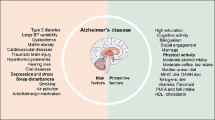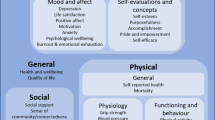“... the obsessed curiosity in our nature, spilling her time by anticipating future matters, as if it is not sufficient to cope with present matters...” Michel de Montaigne, Essays
Abstract
In this paper the author raises a number of general and specific doubts concerning the employment of advance directives in clinical research.
From a general point of view, they are little used even in the countries in which they are legally recognised. From the specific point of view of the demented patient, the profoundly regressive personality changes during the course of the disease make it difficult to believe that there is a continuity between the person who expressed precise opinions when he was in good health or only slightly affected and the same person in an advanced phase of the disease. Especially in non-therapeutic studies, in which any benefit to participants is missing, the author's opinion is that the directly expressed consent of the participants should be absolutely required.
Sommario
In questo articolo vengono sollevate numerose perplessità riguardanti l'utilizzo delle direttive anticipate nella ricerca clinica. Da un punto di vista generale viene sottolineato il loro scarso utilizzo anche nei paesi nei quali sono legalmente riconosciute, da un punto di vista specifico della condizione del paziente demente si rimarca, considerate le modificazioni regressive della personalità che intervengono nella malattia, la possibilità che esista una netta discontinuità tra colui che ha espresso delle opzioni prima di ammalarsi o in fasi iniziali di malattia e l'individuo in fase ormai conclamata.
Viene anche contestato il loro possibile utilizzo nelle ricerche non terapeutiche, dove, mancando un possibile beneficio per chi vi si presta, si ritiene necessario un consenso espresso direttamente dal paziente.
Similar content being viewed by others
References
Dworkin R. Life's dominion. An argument about abortion and euthanasia. London: HarperCollins Publishers, 1993.
Dresser RB &JA Robertson.Quality of life and nontreatment decisions for incompetent patients: a critique of the orthodox approach. Law, Medicine & Health Care, 1989; 17: 234–244.
Miller BL.Autonomy and proxy consent. In: Melnick VL and Dubler NN (Eds.), Alzheimer's dementia: dilemmas in clinical research. Clifton, New Jersey: Humana Press, 1985; p. 239–263.
American College of Physicians.Cognitively impaired subjects. (Position paper) Ann Int Medicine, 111, 10, 1989; p. 843–848.
Keyserling EW, Glass K, Kogan S, Gauthier S.Proposed guidelines for the participation of persons with dementia as research subjects. Perspectives in Biology and Medicine, 1995; 38, 2: 319–362.
Sachs GA, Stocking CB et al.Ethical aspects of dementia research: informed consent and proxy consent. Clinical Research, 1994, 42, 3: 403–412.
Lauter H.Ethics of research with demented patients. In: Bergener M, Brocklehurst JC and Finkel SI (Eds.), Aging, health, and healing. Springer Publishing Company, New York, 1995; 522–542.
Dresser RB.Mentally disabled research subjects. The enduring policy issues. JAMA, 1996; 276, 1: 67–72.
Council of Europe, Directorate of Legal Affairs.Draft convention for the protection of human rights and dignity of the human being with regard to the application of biology and medicine: Convention on human rights and biomedicine. Strasbourg, June 1996.
Sachs GA.Advance consent for dementia research. Alzheimer Disease and Associated Disorders, 1994a; 8, supplement 4, 19–27.
Elliott C &B Elliot.From the patient's point of view: medical ethics and the moral imagination. J Med Ethics, 1991; 17: 173–178.
Parfit D.Reasons and persons. Oxford: Oxford University Press, 194.
Dworkin R.Autonomy and the demented self. The Milbank Quarterly, 64, suppl. II, 1986a; 4–16.
Dworkin R.Philosophical issues in senile dementia. Report to the Office of Technology Assessment. Washington, D.C., 1986b.
Dresser R.Dworkin on dementia. Elegant theory, questionable policy. Hastings Center Report. 1995; 25, 6: 32–38.
Buchanan AE & DW Brock, Deciding for others.The ethics of surrogate decision making. Cambridge: Cambridge University Press, 1989.
Berghmans RLP.The double standard: comparison of ethical problems and standards in research and practice with demented patients. In: M. Bergener, J.C. Brocklehurst & S.I. Finkel (Eds.), Aging, health, and healing. Springer Publishing Company, New York, 1995; p. 511–521.
Sachs GA, Stocking CB andMiles SH.Empowerment of the older patient? A randomized, controlled trial to increase discussion and use of advance directives. J Am Geriatrics Society, 1992; 40, 3: 269–273.
Menikoff JA, Sachs GA andSiegler M.Beyond advance directives — Health care surrogate laws. N Engl J Med, 1992; 327, 16: 1165–1169.
Rubin SM, Strukk WM et al.Increasing the completion of the durable power of attorney for health care. A randomized controlled trial. JAMA, 1994; 271, 3: 209–212.
Sachs GA.Increasing the prevalence of advance care planning. Hastings Center Report, Special Supplement, November–December 1994b; 13–16.
High DM.Advance directives and the elderly: a study of intervention strategies to increase use. Gerontologist, 1993; 33: 342–349.
Jonas H.Philosophical reflections on experimenting with human subjects. In: Beachamp TL & Walters LR (Eds.), Contemporary issues in bioethics. 3rd ed. Belmont, California: Wadsworth Publishing Company, 1989; p. 432–440.
Author information
Authors and Affiliations
Additional information
Professor of Medical Ethics, Limburg University Center, Diepenbeek, Belgium
Rights and permissions
About this article
Cite this article
Berghmans, R.L.P. Advance directives for clinical research in dementia. Ital J Neuro Sci 18 (Suppl 5), 29–33 (1997). https://doi.org/10.1007/BF02048204
Issue Date:
DOI: https://doi.org/10.1007/BF02048204




